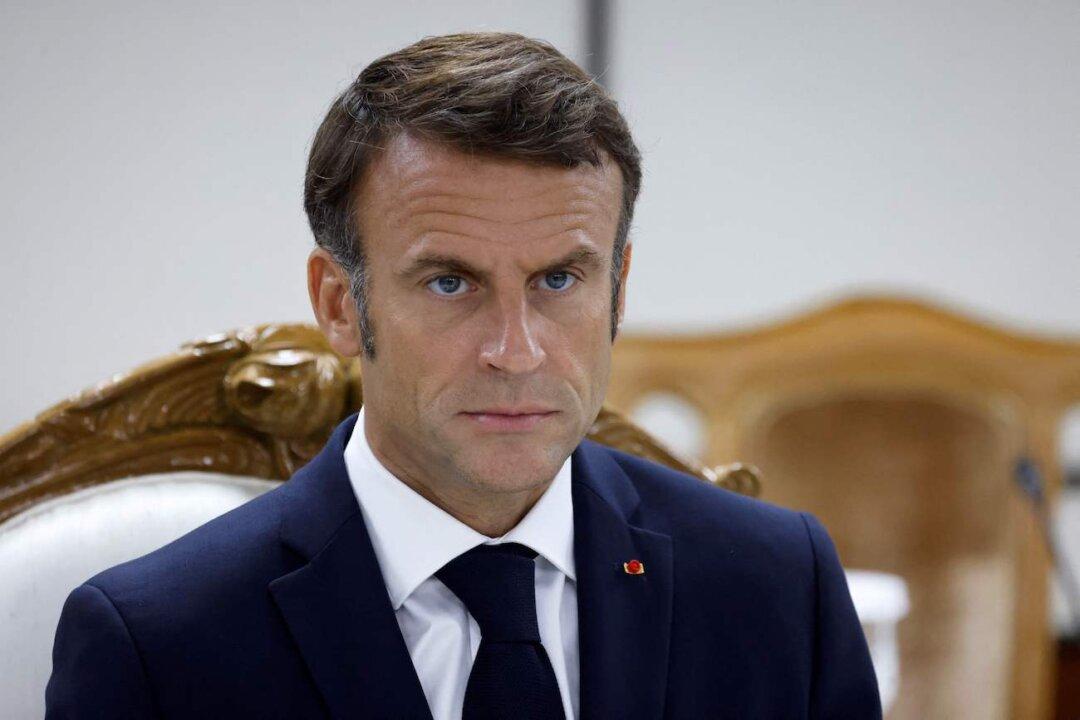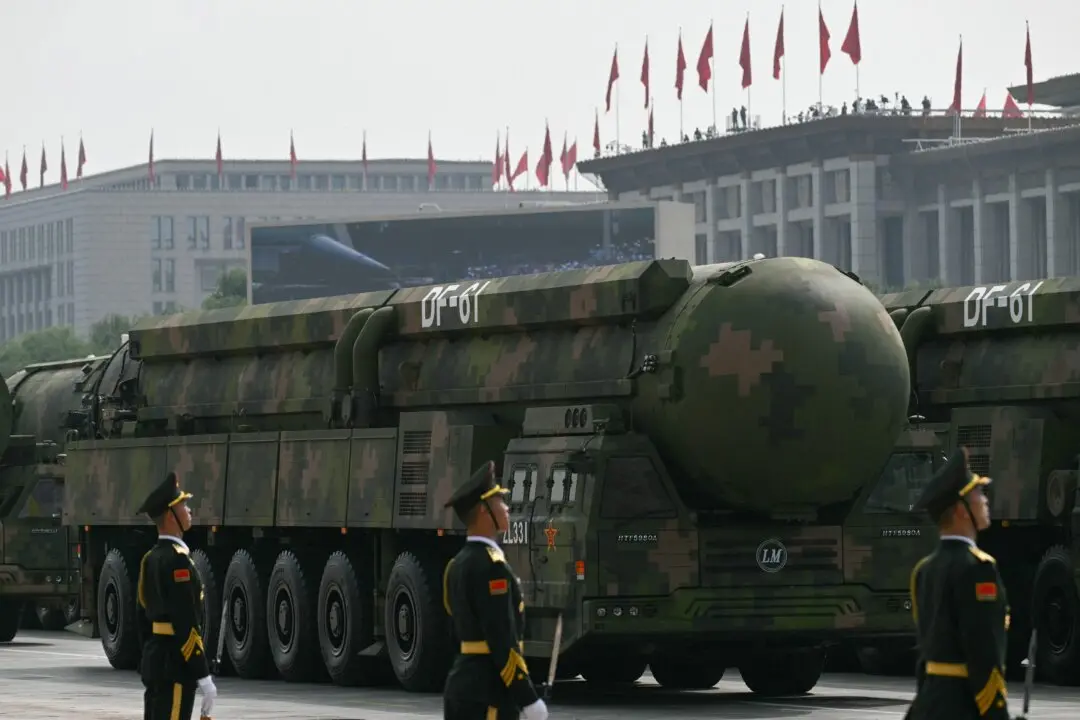French President Emmanuel Macron signaled his support for Ukrainian forces to begin striking across their eastern border into Russia, ratcheting up support within the North Atlantic Treaty Organization (NATO) for attacks inside Russia.
Speaking at a press conference on Tuesday alongside German Chancellor Olaf Scholz, Mr. Macron noted that Russian forces have launched missiles from within their internationally-recognized territory, which have then flown across the border into Ukraine’s eastern Kharkiv region. Mr. Macron said Ukraine must therefore be able to strike inside Russia to stop these types of attacks.





